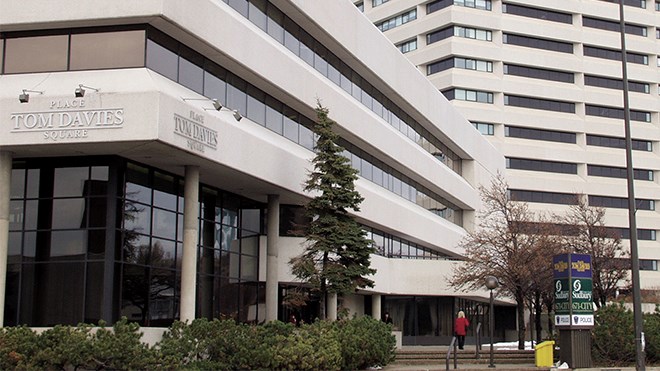For the third year in a row, Greater Sudbury is reporting a significant budget deficit on its more than $500 million operating budget.
At the first formal meeting of the new term Dec. 11, councillors will hear the city spent $2.4 million more than forecast in 2018. That follows deficits of $2.45 million in 2017 and $1.8 million in 2016.
The city ran a small surplus in 2015, the year taxes were frozen and city staff found $6 million in savings, to fulfill a campaign promise by Mayor Brian Bigger.
As in past years, two of the biggest contributors to the red ink are winter control and Sudbury Transit, largely a result of bad weather and unexpected costs.
Transit costs are $915,000 higher than expected, including bus parts totalling $645,000 more than expected, “due to the rise in material prices beyond the rate of inflation, continued component and farebox failures, as well as damage repairs,” says a report headed to city council. “Over expenditure in diesel fuel costs of $310,000 due to increased commodity pricing” added to the deficit."
The winter roads budget was over by $1.25 million, an amount reduced to $860,000 mainly thanks to lower than expected salary costs.
Greater Sudbury Fire Services is again haunted by higher overtime costs, contributing to $890,000 deficit. Unplanned OT cost $630,000 more than forecast, while equipment and maintenance costs made up the rest. The red ink was offset by $110,000 in revenue from Fire Marquee, a service in which a company collects insurance claims for firefighting, and remits a share to the city.
The city's environmental services department (landfills, recycling, composting) was $680,000 in the red, largely due to the collapse of China as a market for the products.
Finally, the storm we had last July led to $800,000 in budgeted cleanup costs.
While the city's winter control reserve fund and the tax rate stabilization fund will cover most of the shortfall, there's still $400,000 unfunded, the report says.
“Departments have been continually working to mitigate this potential deficit by delaying filling vacant positions, curtailing training and travel, delaying expenditures to future years, and other initiatives all while ensuring the city maintains council approved service levels,” the report says.
“If these efforts are not enough to cover the cost staff must look to other sources to fund the remaining anticipated deficit.
“Operating departments have identified capital projects that can be cancelled for various reasons or funds can be reallocated for other purposes. It is recommended that the funds from the capital projects be used to fund any deficit over $2 million with the remainder being allocated to the newly formed capital holding account.”
